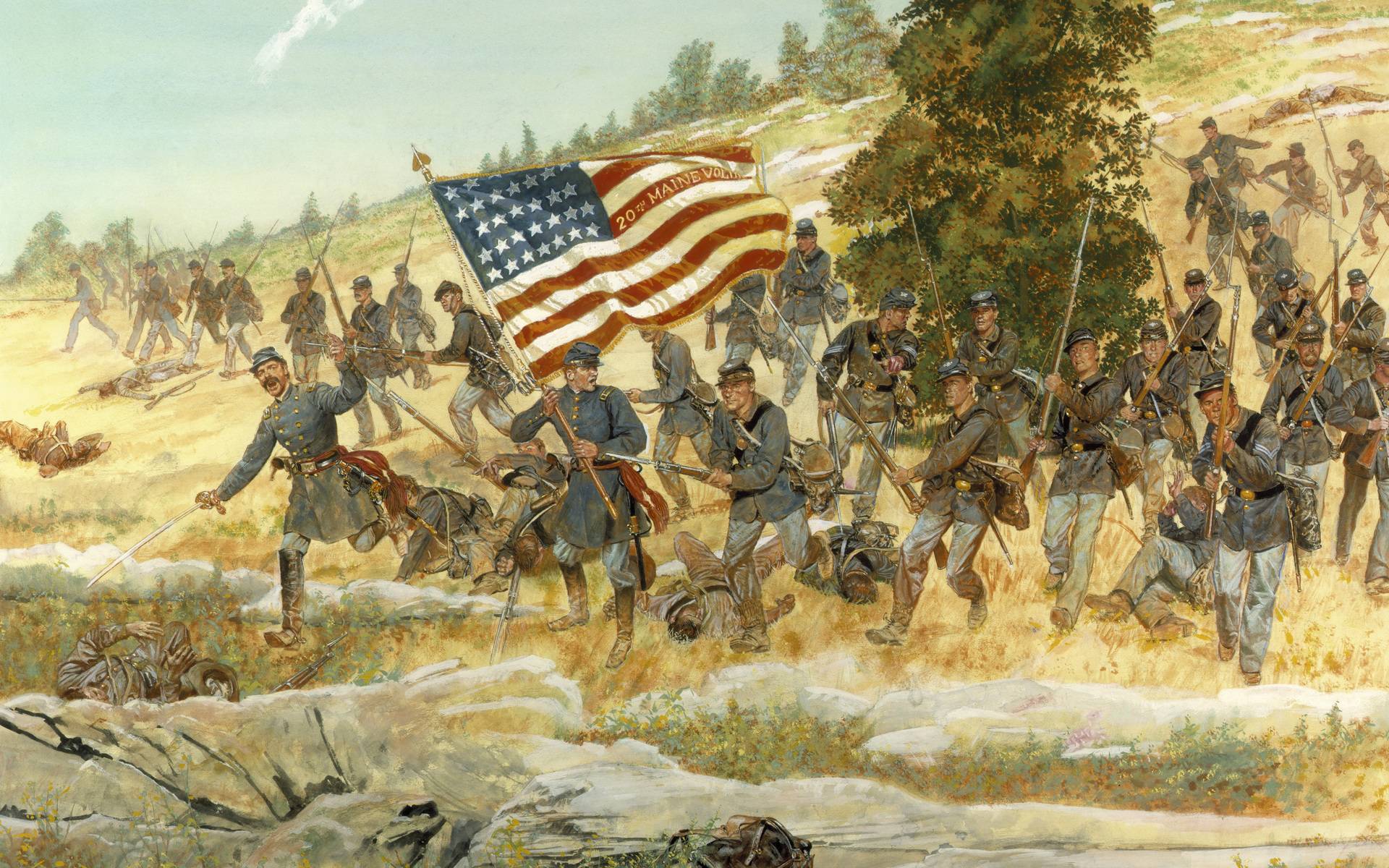The American Civil War, fought from 1861 to 1865, was a pivotal moment in United States history, shaping the nation as we know it today. This conflict arose primarily from tensions surrounding slavery and states' rights, culminating in a fierce struggle between the Union, representing the northern states, and the Confederacy, composed of the southern states that seceded from the Union. While the war was marked by significant battles and profound loss, it also catalyzed crucial changes in American society, particularly regarding civil rights and national identity.
As the Union fought to preserve the nation and abolish slavery, soldiers and civilians alike played roles that would define the very fabric of American culture. The Union's victory not only preserved the United States as one nation but also laid the groundwork for a future that promised greater equality and justice. Understanding the Union's strategies, key figures, and the socio-political landscape of the time helps us appreciate the complexities and consequences of the American Civil War.
In this article, we will delve into the Union's contributions during the American Civil War, exploring significant events, notable leaders, and the lasting impact of this conflict on American society. Through this examination, we aim to unravel the intricacies of a war that tested the nation’s resolve and ultimately transformed its identity.
What Were the Main Causes of the American Civil War?
Before diving into the Union's role in the American Civil War, it is essential to understand the underlying factors that led to this historic conflict. Several key issues fueled the tensions between the North and South:
- **Slavery**: The moral and economic implications of slavery were at the heart of the conflict, with the South relying on slave labor for its agricultural economy.
- **States' Rights**: Southern states believed they had the right to govern themselves and make decisions, including the right to maintain slavery.
- **Economic Differences**: The industrial North and agrarian South had different economic interests that often clashed.
- **Political Power**: The balance of power in Congress between free and slave states heightened tensions and contributed to the desire for secession.
Who Were the Key Figures in the Union?
The Union boasted numerous influential leaders who played crucial roles in strategy and governance during the Civil War. Here is a brief overview of some key figures:
| Name | Position | Notable Contributions |
|---|---|---|
| Abraham Lincoln | President | Issued the Emancipation Proclamation and led the nation through its Civil War. |
| Ulysses S. Grant | General-in-Chief of the Union Army | Led the Union to victory in several key battles, including Vicksburg and Appomattox. |
| William Tecumseh Sherman | General | Known for his "March to the Sea," which aimed to weaken the South's will to fight. |
| Frederick Douglass | Abolitionist and Orator | Advocated for the enlistment of Black soldiers and civil rights for African Americans. |
What Role Did the Union Army Play in the Civil War?
The Union Army was instrumental in fighting the Confederate forces and preserving the nation. Key aspects of the Union Army's role included:
- **Defensive Strategies**: The Union primarily focused on defensive strategies to protect key cities and infrastructure.
- **Mobilization of Resources**: The Union had access to greater resources, including manpower and industrial capabilities, which were crucial for sustaining the war effort.
- **Emancipation**: The Union's fight against the Confederacy became intertwined with the goal of abolishing slavery, especially after Lincoln's Emancipation Proclamation in 1863.
How Did the Union Manage Its Military Leadership?
Managing military leadership was vital to the Union's success in the Civil War. The leadership of generals like Grant and Sherman, as well as the political acumen of Lincoln, allowed the Union to adapt its strategies and overcome setbacks. Challenges included:
- **Leadership Changes**: Frequent changes in commanders created instability and required quick adjustments in strategy.
- **Political Influence**: Lincoln often had to navigate the political landscape, balancing military decisions with public opinion and the needs of Congress.
What Were the Major Battles Fought by the Union?
The Union fought in several significant battles that shaped the course of the Civil War, including:
- Battle of Gettysburg (1863): A turning point in the war, marking the Union’s first significant victory against the Confederacy.
- Battle of Antietam (1862): Known as the bloodiest single-day battle in American history, it halted the Confederate advance into the North.
- Siege of Vicksburg (1863): Gave the Union control of the Mississippi River, effectively splitting the Confederacy.
- Battle of Appomattox Court House (1865): The final battle leading to the surrender of General Lee and the end of the Civil War.
How Did the Union's Victory Impact American Society?
The Union's victory in the American Civil War had profound implications for the nation, including:
- **Abolition of Slavery**: The war led to the passage of the 13th Amendment, which abolished slavery in the United States.
- **Reconstruction Era**: The post-war period focused on rebuilding the South and integrating formerly enslaved individuals into society as free citizens.
- **National Identity**: The concept of a united nation became stronger, as the war fostered a sense of American nationalism.
What Lessons Can We Learn from the Union's Experience in the Civil War?
The Union's experience during the American Civil War offers valuable lessons for contemporary society:
- **The Importance of Unity**: The conflict underscored the necessity of unity in addressing national crises.
- **Civil Rights Advocacy**: The fight for equality and justice continues today, reminding us of the ongoing struggle for civil rights.
- **Legacy of Leadership**: Effective leadership can guide a nation through its most challenging times.


